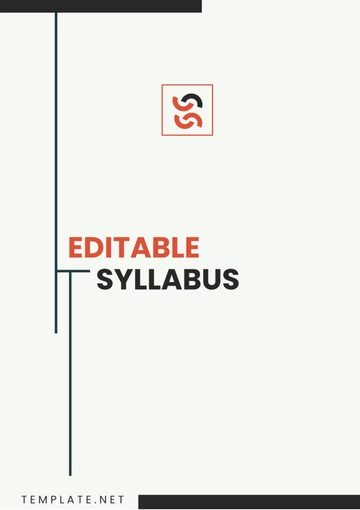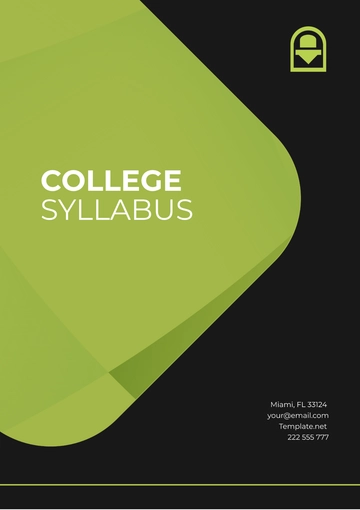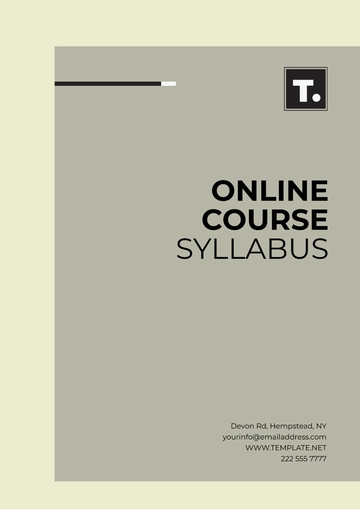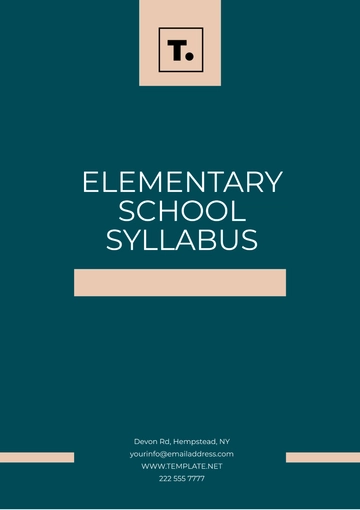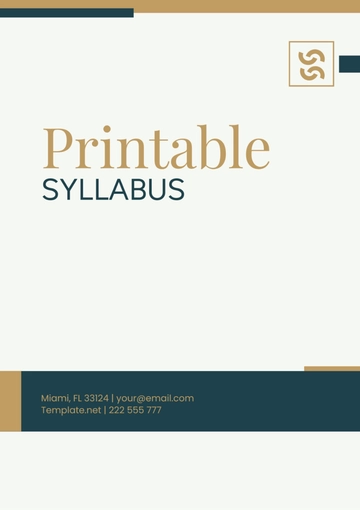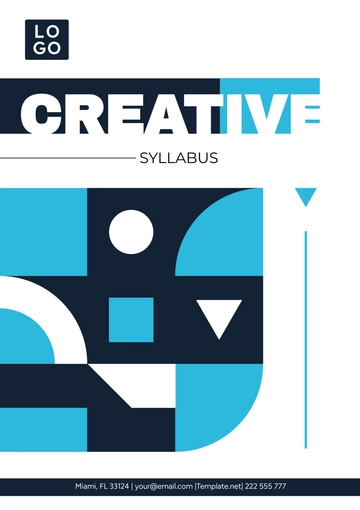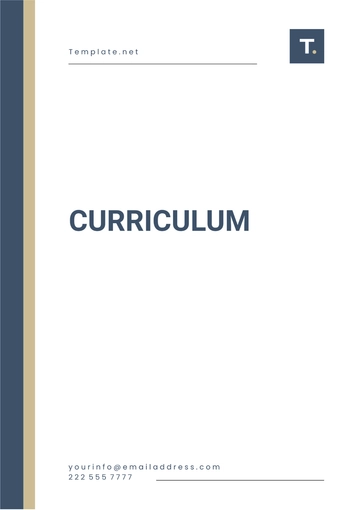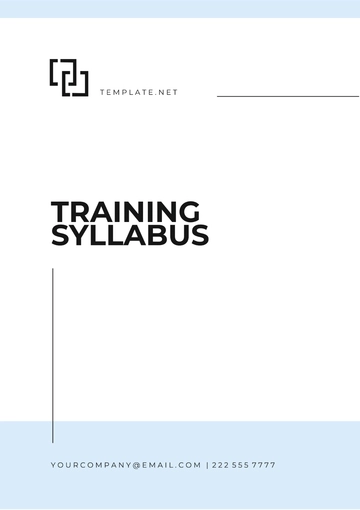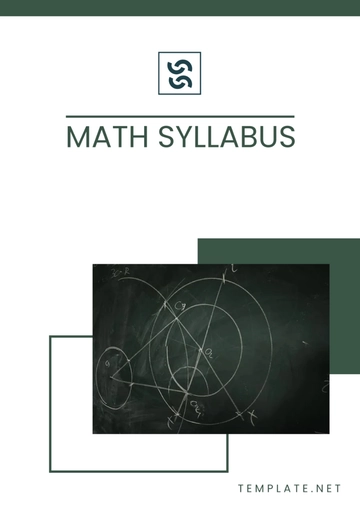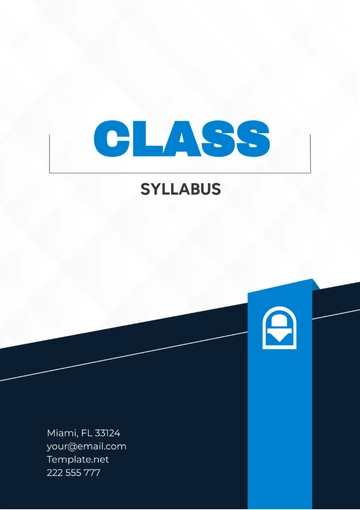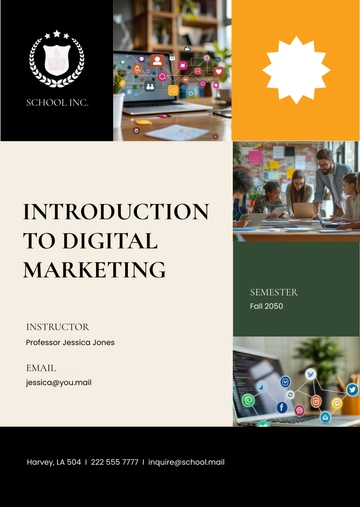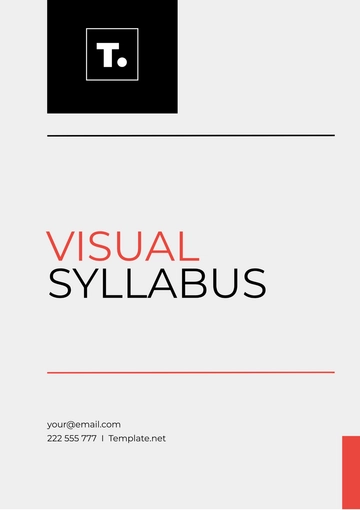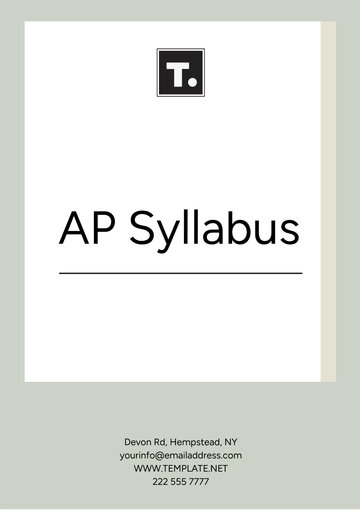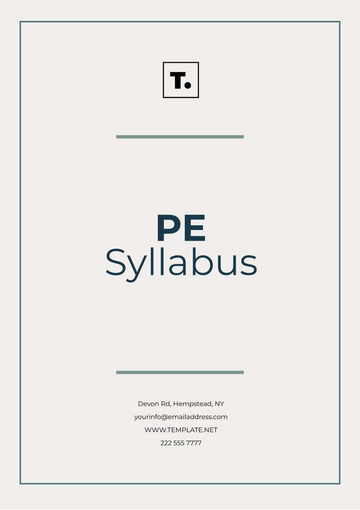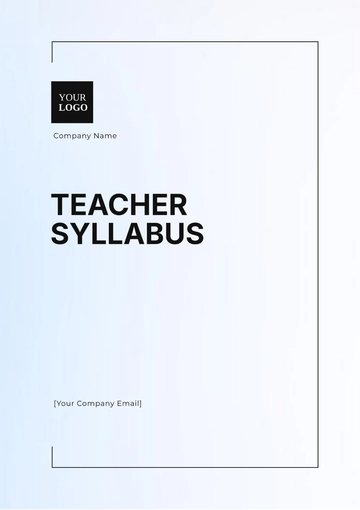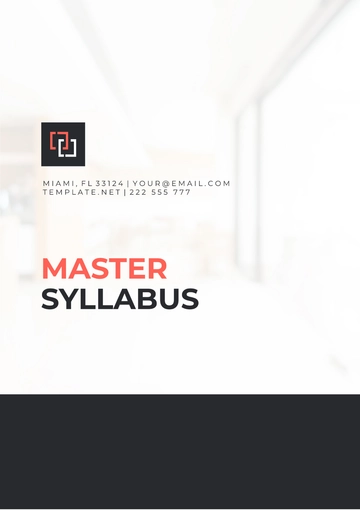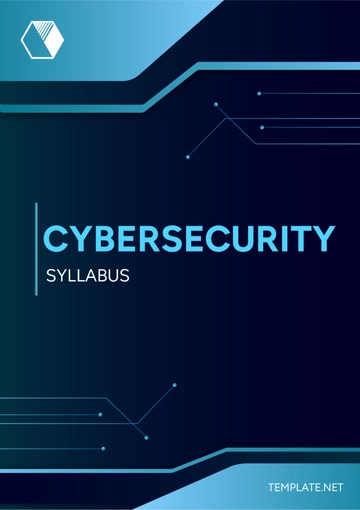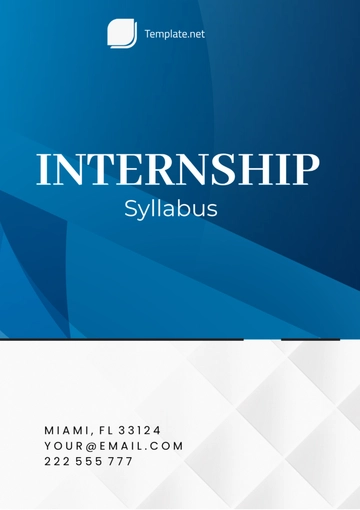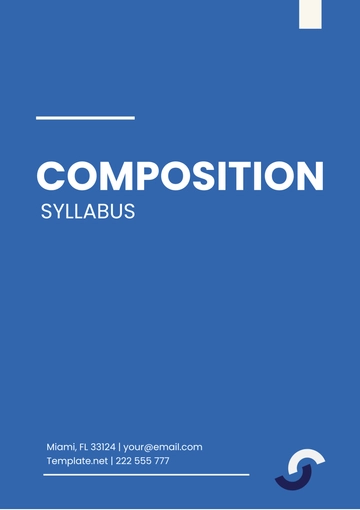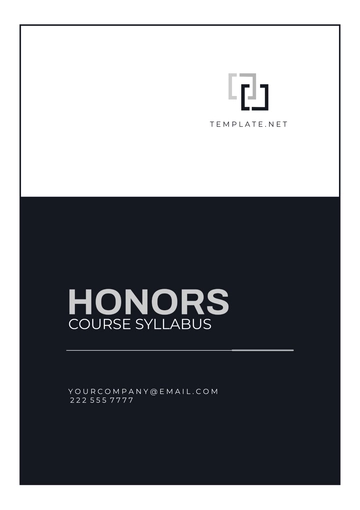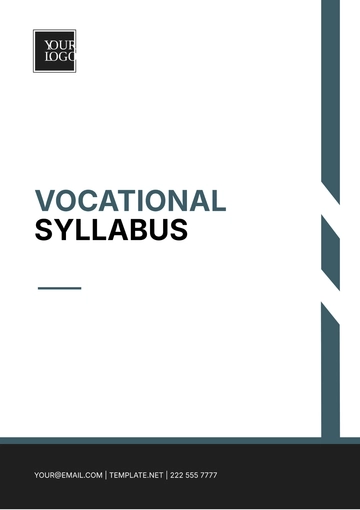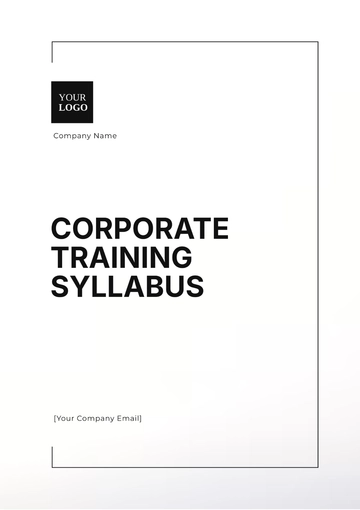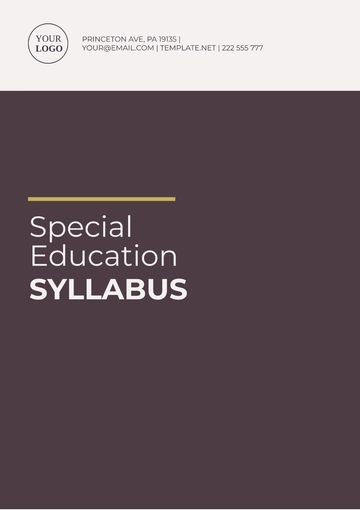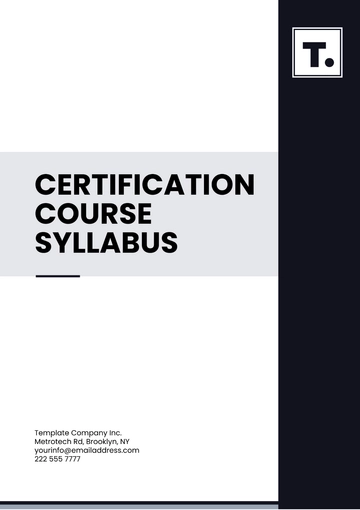Free Physics Syllabus
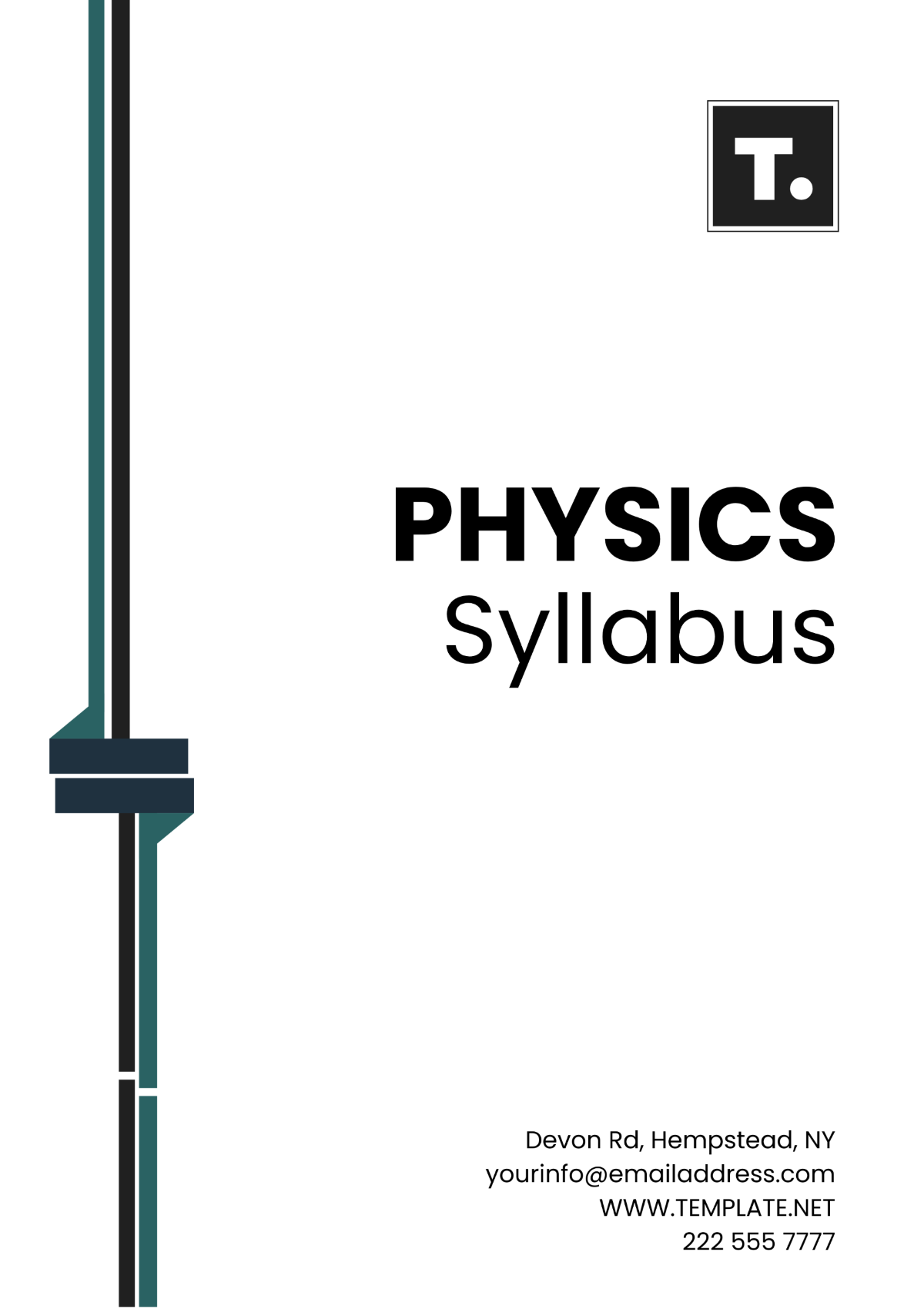
Physics Syllabus Course
Course Title: | [COURSE TITLE] |
Credits: | [CREDITS] |
Instructor: | [INSTRUCTOR] |
Schedule: | [SCHEDULE] |
Location: | [LOCATION] |
Textbook: | [TEXTBOOK] |
Description: | [DESCRIPTION] |
Assessments: | [ASSESSMENTS] |
Grading: | [GRADING] |
Office Hours: | [OFFICE HOURS] |
1. Course Description
This course provides a comprehensive introduction to the basic principles of physics, covering topics such as Mechanics, Thermodynamics, Electromagnetism, Optics, and Quantum Physics. This course is designed for both instructors and students, enabling a deep understanding of the concepts and applications of physics in various fields.
2. Instructor Information
Instructor: [YOUR NAME]
Organization: [YOUR COMPANY NAME]
Contact: [YOUR EMAIL]
3. Learning Objectives
Understand the fundamental concepts and laws of physics and their applications
Develop problem-solving skills using mathematical tools
Conceptualize and analyze physical phenomena
Appreciate the role of physics in technological advancements
Prepare for advanced physics courses
4. Course Schedule
Week | Topic | Activities |
|---|---|---|
1-2 | Introduction to Mechanics | Discussion and problem-solving sessions |
3-4 | Thermodynamics | Discussion, problem-solving sessions, and laboratory work |
5-6 | Electromagnetism | Discussion, problem-solving sessions, and laboratory work |
7-8 | Optics | Discussion, problem-solving sessions and project work |
9-10 | Quantum Physics | Discussion, problem-solving sessions, and final project presentation |
5. Required Reading and Materials
"Fundamentals of Physics" by Halliday, Resnick & Walker
"University Physics" by Young & Freedman
"Introduction to Electrodynamics" by Griffiths
"Thermodynamics: An Engineering Approach" by Cengel & Boles
"Modern Physics for Scientists and Engineers" by Taylor, Zafiratos & Dubson
6. Assignments and Assessments
Problem Sets: Weekly assignments to apply concepts learned in lectures.
Quizzes: Short tests on every topic to test understanding and application.
Laboratory Work: Sessions to understand practical aspects and inferences.
Final Project: In-depth study and presentation on specific topics in physics.
7.Course Policy
Attendance: Regular attendance is essential for grasping the concepts.
Academic Honesty: Plagiarism and cheating will not be tolerated and will result in penalties.
Deadlines: Assignments and project submissions should be on or before the deadline.
Participation: Active participation in discussions is essential for learning.
Code of Conduct: All students must adhere to the classroom and organization's code of conduct.
8.Grading Policy
Assessment Component | Weightage |
|---|---|
Problem Sets | 30% |
Quizzes | 20% |
Laboratory Work | 20% |
Final Project | 30% |
10.Disclaimer
Despite continuous and rigorous efforts being undertaken to ascertain and maintain the accuracy of the information contained within this course syllabus, it should be duly noted that the instructor holds the authority to implement alterations and amendments as and when deemed necessary, without being obligated to provide any prior notice.
- 100% Customizable, free editor
- Access 1 Million+ Templates, photo’s & graphics
- Download or share as a template
- Click and replace photos, graphics, text, backgrounds
- Resize, crop, AI write & more
- Access advanced editor
Discover the ultimate tool for educators with the Physics Syllabus Template from Template.net. Crafted for convenience, this editable and customizable resource empowers teachers to tailor their syllabi effortlessly. Seamlessly edit in our AI Editor Tool for precision and efficiency. Streamline your curriculum planning with this essential template.

